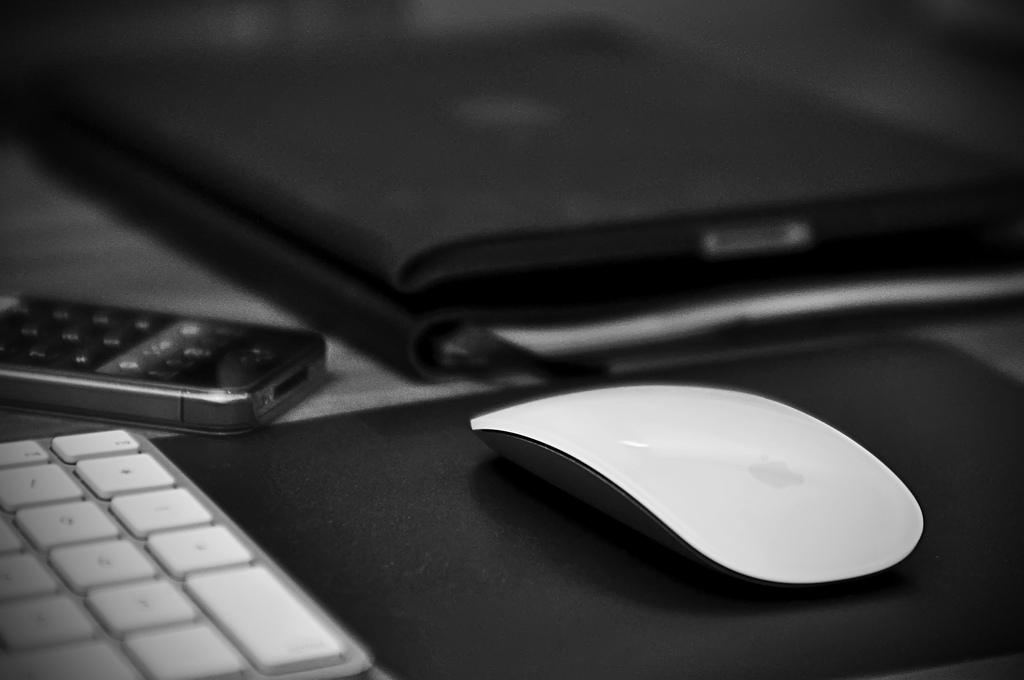
A couple days ago I read a very interesting article about the death of the web on Wired magazine. Having thought through it over the weekend, combining with some similar ideas I had on the subject, I came to conclusion that it really makes sense. The web, as we know it, inside a web browser, will probably die indeed. I have been saying something like that to my peers for a while, since I moved my office gear to Apple and started using the iPhone as my mobile platform. Now that I added an iPad to the bundle, the dots are connecting.
If we look at the way we use technology since the internet became a reality for most of us in the early 90s, it’s been evolving around the web browser for a while. At first, we connected via PPP through a 28.8 kbps modem using Trumpet Winsock and then we would go for any web pages we want using NCSA Mosaic and check our e-mails using a text-based client like Pine. Then, we had faster connections – 56 kbps modems, 128 kbps ISDN, better browsers — Netscape and Internet Explorer, window-based clients like Outlook Express and Eudora, and search engines — Lycos, Altavista, Yahoo. And as we moved from text interfaces to GUIs around 1995, we also started using our web browsers more. Later, with webmail and, more recently, social networks, it looked like the internet was going to evolve inside a web browser window.
But then the mobile boom started. We had a lot of new cool stuff coming with BlackBerry and Nokia/Symbian phones, more portable notebooks and netbooks, 3G connectivity, wifi everywhere. And then came the iPhone and the internet paradigm shifted to apps. And now, it seems there’s an app for everything, no matter what platform you are on. And we started to use web browsers less and less.
Let’s take a look at my daily routine, for instance. I wake up everyday by the sound of an alarm clock on my iPhone (connected to a JBL dock for extra “scare” factor). Before I even get up, I pick up my iPad, check e-mails and read the headlines in my RSS feeds on NetNewsWire. Breakfast reading the newspaper apps (NYT, WSJ, FT, etc) on the iPad and then go to my classes at the university.
There, I have my lecture slides and books on iBooks app, lecture notes in Evernote and class control on Bento. During the commute time, I connect the iPhone to the car stereo and listen to my favorite songs using the iPod app.
Back to the office, I start the work hours reading e-mails on my MacBook. Everything work-related goes on a triple-head monitor setup, so I don’t have to alternate between windows much, which is a time killer. I keep personal stuff, like IM, personal e-mail and social networks on the iPad and leave it with the screen turned off, so I am not distracted. I pick it up between work activities for a bit of a break and relax on Facebook, Twitter, IM and YouTube. During my lunch break, I usually watch a podcast on the iPhone or iPad (TED Talks is my favorite).
Since I work remotely, most of my meetings are via conference calls, which I do using my iPhone. I take notes on Evernote and organize ideas and tasks on OmniFocus.
After work hours, I go to my piano practice and use my iPad as a sheet music reader. Study control is done on Bento. And at the end of the day, I enjoy music in my bedroom using the iPhone and the JBL dock, and read a book or a magazine on the iPad (Wired, Time, or any Zinio subscription).
You may have realized that I haven’t mentioned a web browser anywhere in the last 5 paragraphs describing my routine. That’s because I rarely use a web browser, except for some work-related activities, like collaborative wikis on the company intranet, some searches on Google or accessing some web forums.
Our lives (or mine, at least) are moving away from the browser and towards other more efficient ways of content/services delivery. We don’t need the browser anymore for most things and yet we can get what we want, where we want it and how we want it, thanks to mobile technology. Isn’t that great? I just wished that this kind of technology was more accessible to most people, so this evolution could happen even quicker.
To close this text, I will leave a list of things you can do without a web browser (only apps):
At home:
-
Newspapers: Financial Times, Huffington Post, New York Times, USA Today and Wall Street Journal (iPad).
-
Magazines: Fortune, Marvel comics, Wired and hundreds of subscriptions on Zinio (iPad).
-
RSS feeds: NetNewsWire (iPhone, iPad or Mac).
-
Recipes: Epicurious (iPhone or iPad).
-
Notes: Evernote (iPhone, iPad or Mac).
-
References: Wikipanion and Wolfram Alpha (iPad).
-
Video: abc Player, YouTube, Netflix, ESPN ScoreCenter XL (iPad)
-
Shopping: Amazon, Apple Store (iPhone or iPad).
On the road:
-
Radio: Pandora (iPhone).
-
Movies: Fandango (iPhone).
-
Navigation: TomTom (iPhone).
-
Social: Echofon, Facebook (iPhone).
-
Communication: Trillian, IM+, Skype (iPhone).
-
Calculator: m48 (iPhone).